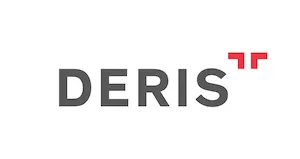With two new decisions the Constitutional Court continues to chip away other provisions of Decree-Law No. 556 on trademarks further eroding and weakening the legislative basis of the protection of IP rights.
To put the issue into context reference is made to the articles published in:
- ILO (International Law Office) on 13 October 2014
- Mondaq on December 2014/January 2015
indicating the series of similarly motivated constitutional court decisions revoking provisions from the Decree-Law No. 551 on Patents & Utility Models, No. 556 on Trademarks and from the Copyright Act No. 5846.
- Case 2015/49, Decision 2015/46, May 13, 2015.
In this case the Constitutional Court decided to cancel the provision of Article 16(5)1 of Decree-Law No. 556 on Trademarks at the request of the 3rd IP Court of Ankara made on the basis of Article 152 of the Constitution.
Facts and Motivations of the 3rd IP Court of Ankara
Article 16(5)1 regulates the issue of assignment of trademarks and reads as follows:
"During the assignment (recordal) of a registered trademark, other trademarks identical or almost identical to the assigned trademark and registered in respect of goods and services identical or similar to those of the assigned trademark to the point of confusing/deceiving the public must also be assigned".
The 3rd IP Court of Ankara requested the cancellation of not only Article 16(5)1 but also of Article 7/1(b)2 on ground that both provisions apply to the principle of "single ownership of a trademark" and that the provisions of Article 7/1(b)2 and 7/1(i)2 cited under absolute grounds of refusal concern the rights of prior trademark holders which are regulated in Article 83 under relative grounds of refusal. The Court of Ankara further asserted that the compulsory assignment requirement provided under Article 16(5)1 being tied to the principle of "single ownership of a trademark" as provided in Article 7/1(b)2 its application is a matter of "Public order" and that Article 16(5)1 does not meet the requirements of the “State of Law” according to which rules should be applied equally and be predictable, objective and coherent. Concluding that Article 16(5)1 does not meet such requirements of the State of Law the Court of Ankara requested the cancellation of this provision on the following three grounds:
-8The trademark right is a property right regulated in the constitution (Article 35) 4,
As such “it is not possible to regulate matters concerning the assignment of trademarks and rights originating there from by Decree-Laws”. Referring also to the earlier decision of the Constitutional Court (Case 2013/147, Decision 2014/75, April 09, 2014), the court of Ankara asserted that Article 16(5)1 violates Articles 2 5 and 917 of the constitution and is to be cancelled.
- The relative grounds concerning the establishment, the restriction, the assignment and protection of trademark right have been regulated as absolute grounds in violation of the principle of "state of law" of the Constitution (Article 2) 5.
The Court of Ankara asserted that the provision of Article 16(5)1 is not coherent with the provision of Article 7/1(b)2 both concerning the principle of “single ownership of trademark” in the sense that the scope of Article 16(5)1 is larger because it encompasses “similarity of goods/services” and that such scope goes beyond “ratio legis”. Considering that the terms consisting of “similarity of goods and services which might confuse/deceive the public” correspond more to Article 8/1(b)3 on relative grounds of refusal which is applicable upon opposition, the Court of Ankara deemed this provision too categoric, with undefined boundaries and unsuitable to provide legal security thereby asserting that Article 16(5)1 goes beyond its aim not only for signs/trademarks but also for goods services thus failing to meet the principles of legal certainty and of proportionality.
- Violation of the principle of “Freedom of work and contract”. (Article 486 of the Constitution)
The Court of Ankara, further referring to the EU Trademark Directive (Council Directive 89/104/EEC of 21 December 1988) and to the Directive 2008/95/EC amending the same, states that there is no provision in these directives corresponding to the provision of Article 16(5)1 regarding compulsory assignment as well as to the principle of the “single ownership of a trademark” and that matters regarding the registration and assignment of trademarks are, nowadays, dealt with in a “totally liberal environment subject to market needs/conditions” on the basis of Article 48 6 of the Constitution within the context of freedom of work and contract.
Further stating that the provision of Article 7/1(b)2 corresponding to the provision of Article 16(5)1 has been regulated in the EU Directive under Article 4/1(a) on relative grounds of refusal, the Court of Ankara asserted that on the basis of the same ground a further means to oppose has been additionally recognized to the prior trademark right holder according to Article 8/1(a)3 concerning relative grounds of refusal.
Decision :
The Constitutional court did not take into account the request for the cancellation of Article 7/1(b)2 as well and cancelled only the provision of Article 16(5)1 for violating the Constitution. In its decision the Constitutional Court states that a trademark right is a property right protected by Article 354 of the Constitution, and that the provision regarding the assignment of a registered trademark being related thereto is in violation of Article 917 of the Constitution prohibiting the restriction or abolishment of a property right on the basis of Decree-Law. As the decision is based only on this ground, the court did not address the other grounds for cancellation put forward.
Comments :
- The positive impact of this decision in the practice of Turkish Patent Institute (T.P.I.) will be two folds :
- from now onwards there will be no more compulsory assignment requests originating from the T.P.I. for the assignment and for the registration of trademarks applied for.
- regarding all previous cases which, for various reasons, could not be finalized, that is registered or assigned, the route is now open to regularize them by refilling new applications for their registration or assignment.
- It is worth noting that the grounds of cancellation put forward by the 3rd IP Court of Ankara have been extended to much wider issues of “State of Law” and of “freedom of work and contract”.
- It is known that similarly motivated requests are waiting the decision of the Constitutional Court such as the cancellation of Article 7/1(b)2 of Decree-Law No. 556 on Trademarks which, if favourably received, would open the way to the registration of trademarks refused in the past according to it.
- Case 2015/33, Decision 2015/50, May 27, 2015.
The Constitutional Court decided to cancel the provision of Article 7/1(i)2 of Decree-Law No. 556 on Trademarks of the request of the 3rd IP Court of Ankara made on the basis of Article 152 of the Constitution.
Facts and Motivation of the 3rd IP Court of Ankara
The provision of Article 7/1(i)2 refers to Article 6bis[8] of the Paris Convention and reads as follows :
“Article 7/1:
Following signs shall not be registered as a trademark:
“trademarks, well known in the sense of the Article 6bis of the Paris Convention, which have not been authorized by their owners”
The Court of Ankara states that the absolute grounds of refusal cited in Article 72 are of public order and are to be taken into consideration ex-offico by the T.P.I. for the registration of trademarks and by the court during litigation.
It further states that in the Turkish Trademark Law/practice it is accepted that Turkish Patent Institute (T.P.I.) shall not accept well-known trademarks for registration in the name of third parties in respect of identical or similar goods and that for benefiting from the protection of Article 6bis8 of the Paris Convention it is enough that the reputation be acknowledged in any convention country including Turkey, worldwide reputation and factual use in the country being not required. In other words, according to the Court of Ankara, the protection afforded by Article 6bis8 of the Paris Convention is limited to the identical and similar goods of the trademark acknowledged as well-known.
The Court of Ankara goes on stating that the protection afforded to well-known marks has been extended by TRIPs as of Article 16/29 to services and as of Article 16/39 to goods and services other than those for which the trademark is registered. Accordingly in order to afford extended protection to “goods and services in other classes”, the well-known trademark, firstly, needs to be registered in Turkey. Secondly, the relation of the subsequent trademark/application with the well-known trademark and the potential damage to the well-known trademark and to its reputation must be assessed. The Court of Ankara maintains that the provisions of Article 7/1(i)2 and 8/43 of the Decree-Law No. 556 are to be assessed together with Article 6bis8 of the Paris Convention and Article 169 of TRIPs and asserts that the reputation acquired by a trademark is in itself not enough as a ground of refusal according to Article 8/43 (relative grounds of refusal) and that at least one of the other 3 conditions mentioned therein need to materialize:
- taking unfair advantage of the reputation of the well-known trademark;
- damaging the reputation of the well-known mark
- harming the distinctive character (dilution) of the well-known mark
The Court of Ankara, further referring to the EU Trademark Directive (Council Directive 89/104/EEC of 21 December 1988) and to the Directive 2008/95/EC amending the same, states that there is no provision in these directives corresponding to the provision of Article 7/1(i)2 and that trademark application and registration matters as well as oppositions are assessed on the basis of rights of prior trademark holders and are, nowadays, dealt with in a “totally liberal environment subject to market needs/conditions” on the basis of Article 48 6 of the Constitution within the context of freedom of work and contract.
The Court of Ankara asserts that on such grounds well-known trademarks can only be handled according to relative ground of refusal pursuant Article 8/43 of Decree-Law No. 556 upon opposition filed by the prior right holders, which is compliance of the EU Directive.
Decision :
The Constitutional Court cancelled the provision of Article 7/1(i)2 for violating the Constitution. It stated that a trademark right is a property right protected according to Article 354 of the Constitution and that Article 917 of the Constitution prohibits regulation by Decree-Law of the “Fundamental Rights”, “Rights and Duties of the Individual” as provided in the Constitution (Part II-Sections 1 and 2).
The Constitutional Court ruled that is not possible to regulate by Decree-Law on Property Right which is part of “Rights and Duties of the Individual”.
Comment :
It may be worth noting that besides cancelling the provision of Article 7/1(i)2 of Decree-Law No. 556 the Constitutional Court states simply that “Property Rights” can not be regulated by Decree-Law. Potentially, this statement could have a much wider effect in the sense that the reasoning behind it, could lead to the revocation of IP Decree-Laws in their entirety, not only for trademarks but also for patents/utility models, designs and geographical indications, leaving without legal base the IP protection in this country.
Conclusion :
The series of similarly motivated cancellation requests and ensuing Constitutional Court decisions obviously create question marks and animate debates about the possible developments on the fate of the Decree-Laws as such regulating and protecting IP rights and on the enforceability of their provisions particularly regarding the issues of invalidity and restriction of right.
The combined effects of these decision obviously accentuate the debate concerning the validity and enforceability of the provisions of the Decree-Laws No. 556 for Trademarks, No. 551 for Patents & Utility Models, No. 554 for Industrial Designs and No. 555 for Geographical Indications, as any attempt for either partial or total invalidation/cancellation of the IP rights regulated according to them can be objected and questioned in light of the above referenced precedent decisions of the Constitutional Court during the court proceedings. Such a possibility is obviously causing serious legal uncertainty, especially having regard to the court actions under prosecution, with respect to the enforceability of Turkish Patents/Utility Models, Design Patents, Trademarks and Geographical Indications on the basis of the current Decree-Laws regulating them.
The draft of the Act which is waiting, since about two years, before the Parliament to be enacted, aims to partially amend the provisions of the existing Decree-Laws rather than to replace them in their entirety with new Acts. As the partial amendments are not likely to prevent the non-amended provisions of the Decree-Laws from being challenged as unconstitutional, in consideration of the Constitutional Court’s series of decisions the contemplated patchy approach reveals already to be ineffective and inappropriate. In order to remove the uncertainty concerning the effective enforcement of the Decree-Laws currently in force it becomes increasingly evident that they need to be replaced in their entirety with new and updated Laws enacted through the Parliament to put the IP protection in this country in a more solid, effective and predictable legal framework.
Footnotes
[1.] (Decree-Law No. 556) Article 16 : Transfer of Trademark
A registered trademark may be transferred in part of or all of the goods or services for which it is registered.
A transfer of the whole of an undertaking with its assets and liabilities, unless provided otherwise, shall include the rights over the trademarks of the undertaking. This provision shall apply to the contractual obligation to transfer the undertaking.
Without prejudice to paragraph 2, an assignment of a registered trademark shall be made in writing and signed by the parties to the contract, except when it is a result of a court decision. Contracts otherwise are considered to be void.
Where the nature of the transfer is such to deceive the public as to the nature, quality, geographical origin of the goods and services in respect of which the (transferred) trademark is registered, the Turkish Patent Institute shall not register the transfer unless the successors agrees to limit the registration of the trademark to goods or services is not likely to deceive the public.
During the assignment (recordal) of a registered trademark, other trademarks identical or almost identical to the assigned trademark and registered in respect of goods and services identical or similar to those of the assigned trademark to the point of confusing/deceiving the public must also be assigned.
On request of one of the parties a transfer shall be entered in the register and published.
As long as the transfer has not been entered in the register, the parties cannot invoke the rights arising from the registration of the trademark against third parties in good faith.
[2.] (Decree-Law No. 556) Article 7 : Absolute Grounds for Refusal for Registration of a Trademark
Following signs shall not be registered as a trademark:
a) signs which do not comply with the provisions of Article 5,
b) trademarks identical or (almost) identical to the point of being undistinguishably similar to a prior trademark registration or application in respect of good(s) or service(s) whether identical or of identical nature/type,
c) trademarks which consist exclusively or whose principal element consist of signs or indications which serve in trade to indicate the kind, characteristics quality, quantity, intended purpose, value, geographical origin, or designate the time of production of the goods or of rendering of the service or other characteristics of goods or services,
d) trademarks which consist exclusively or whose principal element consist of signs and names used to distinguish specific groups of craftsmen, professions or tradesmen or have become customary in the current and established practices of the trade,
e) signs giving substantial value or its shape to the product which shape is a result of the nature of the concerned product or is conditioned by the necessity of obtaining a given technical result.
f) trademarks which are of such a nature as to deceive the public, such as to the nature, quality, place of production or geographical origin of the goods and services,
g) trademarks which have not been authorized by the competent authorizes and are to be refused pursuant to Article 6ter of the Paris Convention,
h) trademarks containing badges, emblems or escutcheons other than those covered by Article 6ter of the Paris Convention which have not been authorized by the competent authorizes and are of particular historical and cultural public interest,
i) trademarks, well known in the sense of the Article 6bis of the Paris Convention, which have not been authorized by their owners,
j) trademarks which contain refer to religious symbols and values,
k) trademarks which are contrary to public order and to accepted principles of morality.
The registration of a trademark shall not be refused according to sub-paragraphs (a), (c), (d) where the trademark has acquired distinctive character in respect of the good(s) or service(s) for which it is to be registered as of the use made thereof prior to the date of registration.
[3.] (Decree-Law No. 556)Article 8 : Relative Grounds for Refusal for Registration of a Trademark
Upon opposition by the proprietor of an application for registration of a trademark or of a registered trademark, the trademark applied for shall not be registered subject to the following conditions:
a) Where the trademark applied for registration is identical with a registered trademark or with a trademark applied for registration under a prior date of filing and the registration is sought for identical goods and services,
b) Where the trademark applied for is identical or similar to a registered trademark or to a trademark applied for registration under a prior date of filing and the registration is sought for identical or similar goods or services in that the likelihood of confusion includes the likelihood of association with the registered trademark or with the trademark applied for registration under a prior date of filing.
Upon opposition by the proprietor of a trademark, a trademark shall not be registered where an agent or representative of the proprietor of the trademark has applied for registration thereof in his own name without the proprietor's consent and without a valid justification.
Upon opposition by the proprietor of a non-registered trademark or of another sign used in the course of trade, the trademark applied for shall not be registered provided that;
a) the rights to the sign were acquired prior to the date of filing of the application for registration of the trademark, or prior to the date of priority claimed for the application for registration,
b) the sign confers on its proprietor the right to prohibit the use of a subsequent trademark,
A trademark applied for which is identical or similar to a registered trademark or to a trademark application with a prior date of filing may be used for different goods and services. However, where in the case of a registered trademark or of a trademark application with a prior date of filing, the trademark has a reputation and where the use without due cause of trademark applied for would take unfair advantage of, or be detrimental to, the distinctive character or repute of the registered trademark or of the trademark application with a prior date of filing, upon opposition by the proprietor of the prior trademark registration or application, the trademark applied for shall be refused even if it is to be used in respect of differing goods and services.
Upon opposition by the holder of the relevant right, the trademark applied for shall not be registered if it contains the personal name, photograph, copyright, or any industrial property rights of third parties.
Upon opposition, a trademark applied for which is identical or similar to a collective or a guarantee mark shall not be registered within three years from the date of expiry of the collective or of the guarantee mark.
Where the term of protection of a trademark has expired for reasons of non-renewal, the application, filed, within two years from the date of expiry of the non-renewed trademark, for the registration of an identical or similar mark in respect of identical or similar goods and services shall be refused upon opposition.
[4.] (Constitution) Article 35 : Right to property
Everyone has the right to own and inherit property.
These rights may be limited by law only in view of public interest.
The exercise of the right to property shall not contravene public interest.
[5.] (Constitution) Article 2: Characteristics of the Republic
The Republic of Turkey is a democratic, secular and social state governed by rule of law, within the notions of public peace, national solidarity and justice, respecting human rights, loyal to the nationalism of Atatürk, and based on the fundamental tenets set forth in the preamble.
[6.] (Constitution) Article 48 : Freedom of work and contract
Everyone has the freedom to work and conclude contracts in the field of his/her choice. Establishment of private enterprises is free.
23
The State shall take measures to ensure that private enterprises operate in accordance with national economic requirements and social objectives and in security and stability.
[7] (Constitution) Article 91 : Authorization to issue decrees having the force of law
The Grand National Assembly of Turkey may empower the Council of Ministers to issue decrees having the force of law. However, with the exception of martial law and states of emergency, the fundamental rights, individual rights and duties included in the first and second chapters and the political rights and duties listed in the fourth chapter of the second part of the Constitution, shall not be regulated by decrees having the force of law.
The empowering law shall define the purpose, scope, and principles of the decree having the force of law, the operative period of the empowering law, and whether more than one decree will be issued within the same period.
Resignation or fall of the Council of Ministers, or expiration of the legislative term shall not cause the termination of the power conferred for the given period.
43
When approving a decree having the force of law by the Grand National Assembly of Turkey before the end of the prescribed period, it shall also be stated whether the power has terminated or will continue until the expiry of the period.
Provisions related to issuing decree having the force of law issued by the Council of Ministers meeting under the chairpersonship of the President of the Republic in time of martial law or states of emergency, are reserved.
Decrees having the force of law shall come into force on the day of their publication in the Official Gazette. However, a later date may be indicated in the decree as the date of entry into force.
Decrees shall be submitted to the Grand National Assembly of Turkey on the day of their publication in the Official Gazette.
Empowering laws, and decrees having the force of law which are based on them, shall be debated in the committees and in the Plenary of the Grand National Assembly of Turkey with priority and urgency.
Decrees not submitted to the Grand National Assembly of Turkey on the day of their publication shall cease to have effect on that day and decrees rejected by the Grand National Assembly of Turkey shall cease to have effect on the day of publication of the resolution in the Official Gazette. The amended provisions of the decrees that are approved as amended shall go into force on the day of their publication in the Official Gazette.
[8.] (Paris Convention) Article 6bis : Marks: Well-Known Marks
(1) The countries of the Union undertake, ex officio if their legislation so permits, or at the request of an interested party, to refuse or to cancel the registration, and to prohibit the use, of a trademark which constitutes a reproduction, an imitation, or a translation, liable to create confusion, of a mark considered by the competent authority of the country of registration or use to be well known in that country as being already the mark of a person entitled to the benefits of this Convention and used for identical or similar goods. These provisions shall also apply when the essential part of the mark constitutes a reproduction of any such well-known mark or an imitation liable to create confusion therewith.
(2) A period of at least five years from the date of registration shall be allowed for requesting the cancellation of such a mark. The countries of the Union may provide for a period within which the prohibition of use must be requested.
(3) No time limit shall be fixed for requesting the cancellation or the prohibition of the use of marks registered or used in bad faith.
[9.] (TRIPs) Article 16: Rights Conferred
1. The owner of a registered trademark shall have the exclusive right to prevent all third parties not having the owner's consent from using in the course of trade identical or similar signs for goods or services which are identical or similar to those in respect of which the trademark is registered where such use would result in a likelihood of confusion. In case of the use of an identical sign for identical goods or services, a likelihood of confusion shall be presumed. The rights described above shall not prejudice any existing prior rights, nor shall they affect the possibility of Members making rights available on the basis of use.
2. Article 6bis of the Paris Convention (1967) shall apply, mutatis mutandis, to services. In determining whether a trademark is well-known, Members shall take account of the knowledge of the trademark in the relevant sector of the public, including knowledge in the Member concerned which has been obtained as a result of the promotion of the trademark.
3. Article 6bis of the Paris Convention (1967) shall apply, mutatis mutandis, to goods or services which are not similar to those in respect of which a trademark is registered, provided that use of that trademark in relation to those goods or services would indicate a connection between those goods or services and the owner of the registered trademark and provided that the interests of the owner of the registered trademark are likely to be damaged by such use.





